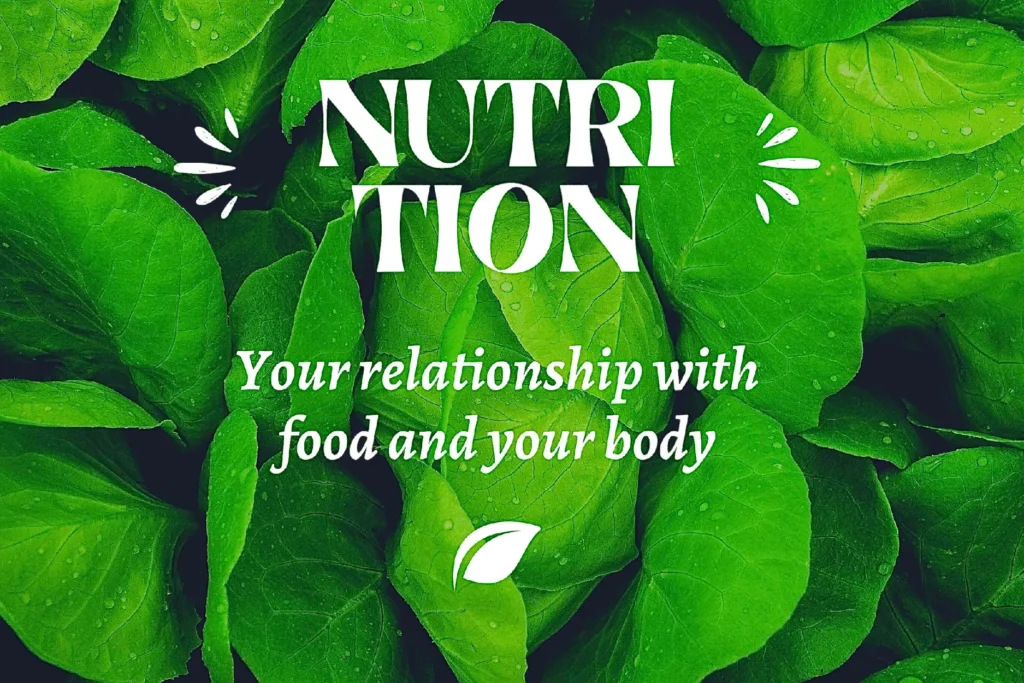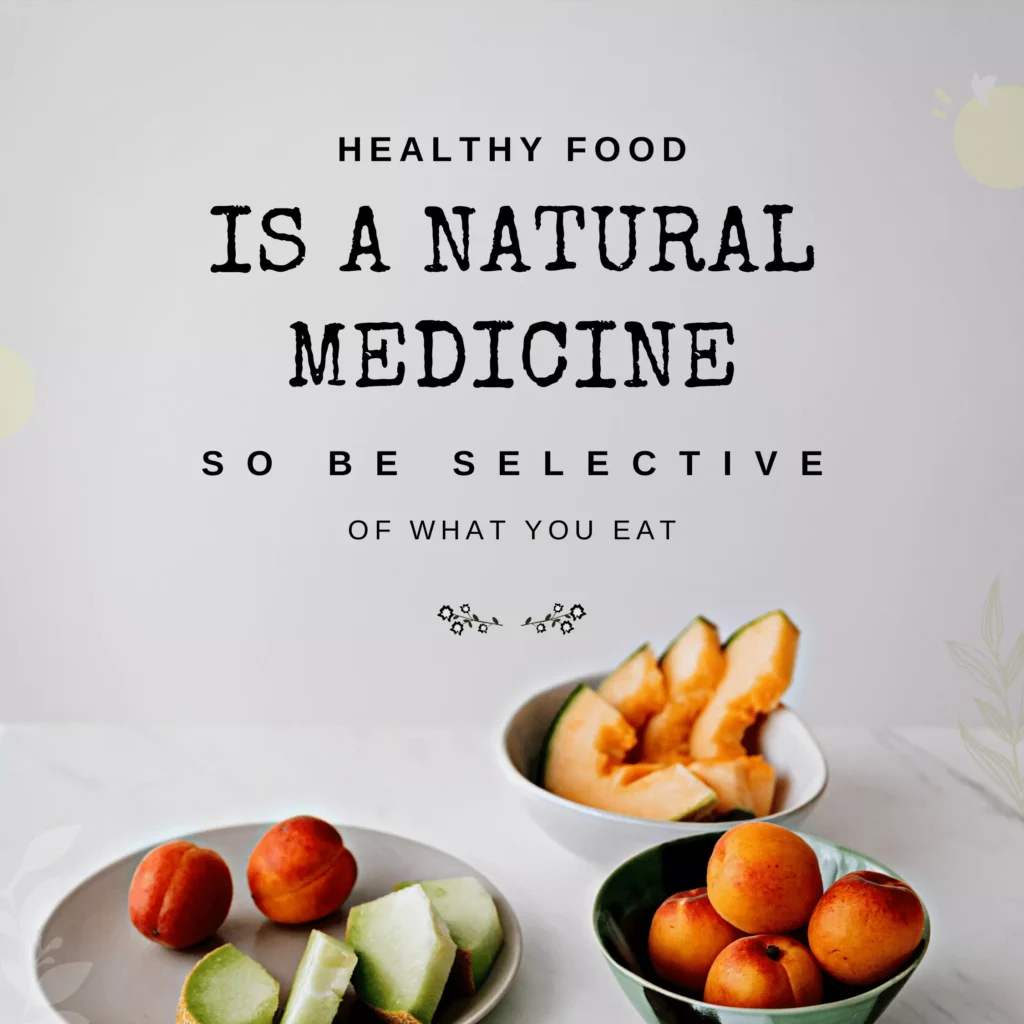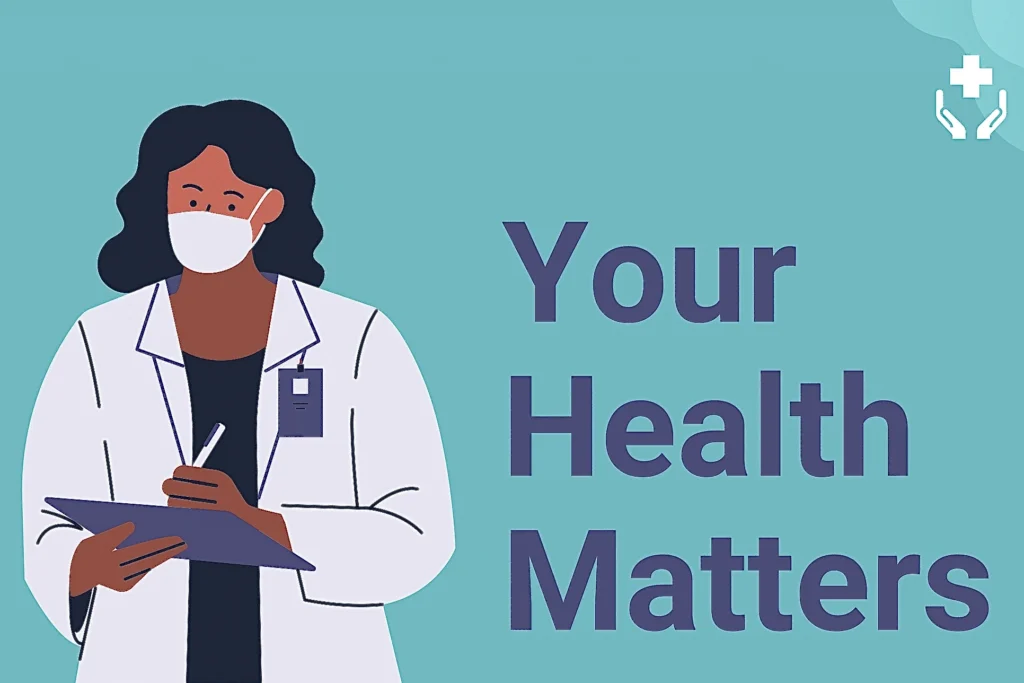Imagine your body as a complex machine, intricately woven together by cells, tissues and organs. Just as a machine requires the right fuel to function optimally, our bodies rely on the nutrients found in our food. This is where the science of Food and Nutrition comes into play. It’s the science that unravels the role of macronutrients (carbohydrates, proteins and fats) and micronutrients (vitamins and minerals) in fueling our bodies, supporting growth and maintaining vital functions.

Food and nutrition are inseparable, with each morsel impacting our well-being on a cellular level. The carbohydrates we consume break down into glucose, providing energy for every cell. Proteins, composed of amino acids, facilitate cell repair and regeneration. Fats, often misunderstood, are vital for hormone production, brain health and the absorption of fat-soluble vitamins.
Exploring the Nutrient Spectrum

The concept of “food as medicine” rings true when we delve into the role of nutrients. Carbohydrates are the body’s primary energy source, supplying the fuel needed for everyday activities. Complex carbohydrates found in whole grains, fruits and vegetables release energy gradually, preventing blood sugar spikes and crashes.
Proteins, often dubbed the body’s building blocks, repair tissues and foster immune response. Their role extends beyond muscle development; enzymes, hormones and antibodies are all composed of proteins. Ensuring a variety of protein sources, from lean meats to plant-based options like legumes and tofu, ensures a balanced intake of essential amino acids.
Fats, far from being the enemy, are essential for cell structure and the absorption of fat-soluble vitamins (A, D, E, and K). Unsaturated fats, found in olive oil, avocados and nuts, promote heart health by reducing bad cholesterol levels. Omega-3 fatty acids, abundant in fatty fish, play a vital role in brain function and reducing inflammation.
Micronutrients are no less significant. Vitamins like vitamin C, vitamin D and the B vitamins play diverse roles, from boosting immunity to aiding nerve function. Minerals like calcium, iron and magnesium support bone health, oxygen transport and muscle contractions. A well-rounded diet that incorporates fruits, vegetables, lean proteins, whole grains and healthy fats ensures that your body receives the full spectrum of nutrients it requires.
The Culinary Medicine Approach
What if we thought of our meals as health prescriptions? That’s what culinary medicine does – it combines Food and Nutrition science with cooking. Instead of just looking at food as nutrients, it focuses on how whole foods work together. Take the Mediterranean diet, for example. It’s a great example of culinary medicine. It’s all about fresh produce, lean proteins, olive oil, and whole grains. This creates a diet that’s rich in nutrients and good for your heart.
The best part about culinary medicine is how practical and flexible it is. With simple cooking tricks, like roasting veggies with herbs or marinating meat in citrus juice, you can turn basic ingredients into tasty and healthy dishes. When you embrace culinary medicine, you not only feed your body well but also discover the joy of cooking.
Alkaline Vegan Diet: The Journey to Balance
The Alkaline Vegan Diet offers a captivating fusion of pH equilibrium and plant-based nourishment, heralding comprehensive well-being and ecological harmony. Navigate through the fundamental principles, wide-ranging benefits and practical guidance of this transformative dietary voyage. Explore the intricate dance between alkalinity and veganism, fostering equilibrium, vitality and conscious coexistence.
Food, Nutrients and Disease Prevention
The link between what we eat and our health is not just a theory – it’s proven by solid research. Eating lots of fiber from fruits, vegetables and whole grains lowers the chances of heart disease and type 2 diabetes. Fiber doesn’t just keep our digestion happy, it also helps control blood sugar and keeps us from overeating because it makes us feel full.

Colourful fruits and veggies are full of antioxidants. These little heroes fight off harmful stuff in our bodies and lower the risk of diseases, helping us live longer. For example, berries are bursting with antioxidants called anthocyanin, which make our brains work better and reduce inflammation.
When it comes to our bones, what we eat really matters. Calcium and vitamin D, found in dairy, fortified foods, and sunshine, make our bones strong and prevent things like osteoporosis. And for pregnant folks, getting enough folate is super important because it keeps babies from having certain birth defects.
Navigating the Dietary Landscape: Trends and Realities
In an age filled with fad diets and conflicting Food and Nutrition advice, keeping track of the diet landscape can be challenging. From the carb-cutting approach of the keto diet to the plant-based movement’s emphasis on sustainability, each trend brings its own philosophy. What rings true in these trends, however, is the importance of balance, moderation and personalization.
Rather than adopting a one-size-fits-all approach, it’s essential to consider your unique nutritional needs, preferences and lifestyle. Consulting a registered dietitian can provide personalized guidance tailored to your goals, ensuring you make informed choices that align with your well-being.
The Mind and Body Connection: Gut Health and Beyond

Emerging research is revealing an intriguing connection between the gut and the brain—the gut-brain axis. The trillions of bacteria residing in our digestive system, collectively known as the gut microbiota, play a pivotal role in our overall health. A balanced and diverse gut microbiota is associated with improved mood, cognitive function and immune response.
Certain foods, often referred to as prebiotics and probiotics, contribute to a healthy gut microbiota. Prebiotics, found in foods like garlic, onions and bananas, fuel the growth of beneficial gut bacteria. Probiotics, present in fermented foods like yogurt and kefir, introduce live bacteria that support gut health. By nurturing your gut microbiota, you’re fostering a harmonious relationship between your Mind and Body Connection.
The Power of Portion Control
In our quest for better health, we often focus on the quality of our food choices. Equally important, however, is portion control. Even meals that are high in nutrients might cause weight gain if they are consumed in excess. The concept of mindful eating encourages us to savour each bite, pay attention to hunger cues and eat with intention.
Mindful eating goes beyond portion control—it’s about actively building a healthy relationship with food. Instead of labelling foods as “good” or “bad,” it emphasises the pleasure of eating and the importance of listening to your body’s signals. By eating mindfully, you can enjoy your meals without guilt, leading to a more balanced and sustainable approach to nutrition.
Nutrigenomics: How Your Genes Impact Your Nutrition
Scientific progress has led to nutrigenomics, studying how genes interact with what we eat. Our genes affect how our bodies use nutrients and react to diets. Personalised Food and Nutrition, shaped by our genetic makeup, becomes important.
For example, some people are genetically more likely to have trouble with lactose, while others handle caffeine well. Knowing your genes helps you make diet choices that suit your body. Remember, genes are just part of the health puzzle. Things like exercise, stress control, and sleep matter too.”
Nurturing Healthy Habits
Transitioning to a healthier diet doesn’t necessitate drastic changes overnight. It’s about cultivating sustainable habits that gradually become second nature. Here are some practical steps to embark on a journey of improved Food and Nutrition:
- Start with Small Changes: Instead of overwhelming yourself with a complete dietary overhaul, begin by making small, manageable changes. Swap sugary beverages for water, choose whole grains over refined grains and incorporate an extra serving of vegetables into your meals.
- Embrace Mindful Eating: Tune into your body’s hunger and fullness cues. Eat slowly, savoring each bite and avoid distractions while eating. In addition to improving digestion, this practice also aids in reducing overeating.
- Plan Balanced Meals: Aim for a combination of macronutrients in every meal. A balanced plate includes lean protein, complex carbohydrates, healthy fats and a variety of colorful fruits and vegetables.
- Stay Hydrated: Water is essential for digestion, circulation, and maintaining body temperature. To make sure you stay hydrated during the day, keep a reusable water bottle with you.
- Prioritize Whole Foods: Processed and packaged foods often contain added sugars, unhealthy fats and artificial additives. Opt for whole foods in their natural state to maximize nutrient intake.

- Cook at Home: Cooking at home provides you control over the ingredients and serving amounts. Experiment with new recipes to keep your meals exciting and diverse.
- Read Labels: When shopping for packaged foods, read nutrition labels to make informed choices. Look for products with minimal added sugars, sodium and trans fats.
- Practice Moderation: While enjoying occasional treats is perfectly fine, practice moderation to avoid excessive consumption of unhealthy foods.
- Stay Informed: Stay up-to-date with the latest nutrition research and recommendations. Consult reliable sources such as registered dietitians, government health agencies and reputable health organizations.
- Take Note of Your Body: Keep in mind that every person has different dietary demands. Pay attention to how your body reacts to various foods and change your selections as necessary.
Summing Up: The Impact of Food and Nutrition

In the intricate world of Food and Nutrition, we have the ability to shape our health and vitality. Each bite fuels our bodies and supports our well-being. By understanding macros, micros, and their role in preventing diseases, we can make smart food choices.
Exploring culinary medicine, personalised Food and Nutrition, and mind and body connection reveals food’s many dimensions in our lives. Mindful eating and healthy habits help us create a positive food relationship, one that’s about pleasure, nourishment, and self-care.
So, when you’re deciding what to eat, remember food isn’t just fuel—it’s a partner in your quest for well-being. Let your plate show your commitment to a vibrant and thriving life.
FAQs
What role do macronutrients and micronutrients play in our diet?
Macronutrients (carbohydrates, proteins and fats) provide energy and support growth.
Micronutrients (vitamins and minerals) are essential for various bodily functions.
How does mindful eating contribute to a healthier relationship with food?
Mindful eating encourages savoring each bite and paying attention to hunger cues, fostering a positive relationship with food.
What is culinary medicine and how does it impact our dietary choices?
Culinary medicine combines nutrition science with cooking techniques to emphasize whole foods and promote health through balanced eating.
Can personalized nutrition based on genetics benefit our health?
Nutrigenomics studies how genes interact with nutrients, offering insights into tailoring diets to individual genetic profiles.
What practical steps can I take to improve my food and nutrition habits?
Start with small changes, embrace mindful eating, plan balanced meals, stay hydrated, prioritize whole foods, cook at home, read labels, practice moderation, stay informed and listen to your body’s needs.
Disclaimer: This blog post is for informational purposes only and should not be considered a substitute for professional medical advice or consultation. If you have any questions regarding a medical problem, always seek advice from your doctor or another qualified healthcare expert.

7 thoughts on “Food and Nutrition”